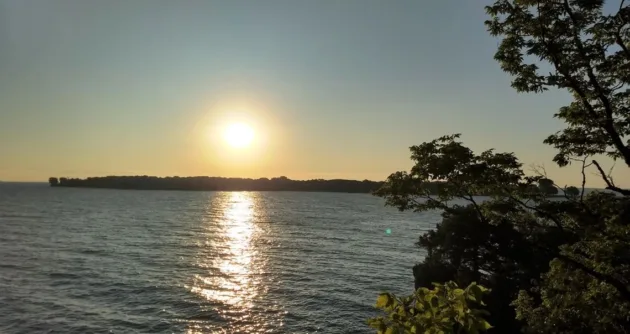FOR IMMEDIATE RELEASE
July 15, 2017
Contact:
Kai Huschke
kai@celdf.org
509- 607-5034
Spokane, WA: Federal Judge Thomas O. Rice granted the federal government’s motion to dismiss Holmquist vs. United States – a lawsuit brought by Spokane area residents contending that federal law is interfering with local lawmaking powers to address the constitutional right to a healthy and livable climate.
The judge’s decision rested on aspects of standing but did not speak to the constitutional right to a healthy and livable climate or the right of local community self-government. A hearing on the motion took place in the federal courthouse in Spokane on July 12th and focused on local lawmaking powers to ban coal and oil trains as a violation of the right to a healthy climate being preempted by federal law, specifically the Interstate Commerce Commission Termination Act (ICCTA).
“Judge Rice said this case is not ready to be heard by the courts. Yet every day of inaction on keeping coal and oil in the ground makes the climate situation worse. The people of Spokane are ready to take action to stop climate change. I hope the courts will soon be ready to side with the people.” says CELDF attorney Lindsey Schromen-Wawrin.
The lawsuit was filed on behalf of six Spokane area residents by the Community Environmental Legal Defense Fund (CELDF) in January 2017.
An ironic point made in the court’s decision to grant the motion to dismiss was how it ignored the reasoning behind the need for the local initiative and the lawsuit that followed: the lack of meaningful actions taken by the state or federal governments to address climate change. Judge Rice wrote in his decision, coming on the heels of the United States pulling out of the Paris Climate Accord, that:
Plaintiffs are not precluded from influencing state and federal legislation, which are likely the best avenues where any concern for the climate can be addressed on a state or national scale. Importantly, we have a representative government at the federal level—even if Plaintiff’s’ power to change and create laws are diluted, this is the nature of our well-established system of laws and self-governance by representation.
Since the seriousness of global warming began to be reported in the 1970’s people have been attempting to “influence” state and federal governments through the people’s supposed “representative government.” In 2014, a Princeton University study reported that ordinary people have no influence on how their “representatives” decide federal policy.
“Judge Rice’s decision to dismiss the suit against the government just kicks the can down the road and avoids the main issue here, which is: How do we as citizens work to reduce greenhouse gas emissions, which cause global warming, which causes climate change?”, says Reverend George Taylor, one of the Spokane plaintiffs. “This is the science. The judges, the legislators, and the executive branch of government all are charged with this responsibility.”
One upside to the court’s decision is the invitation for Spokane’s right to a healthy climate initiative banning coal and oil trains to move forward and be adopted in order then for the court to address the two primary issues from the lawsuit which focused on how federal law is in violation of the right to a healthy and livable climate and the right of local community self-government.
Plaintiff’s have 60 days from the date of the decision to appeal to the Ninth Circuit Court of Appeals.
About CELDF — Community Environmental Legal Defense Fund
The Community Environmental Legal Defense Fund is a non-profit, public interest law firm providing free and affordable legal services to communities facing threats to their local environment, local agriculture, local economy, and quality of life. Its mission is to build sustainable communities by assisting people to assert their right to local self-government and the rights of nature. www.celdf.org.
###

